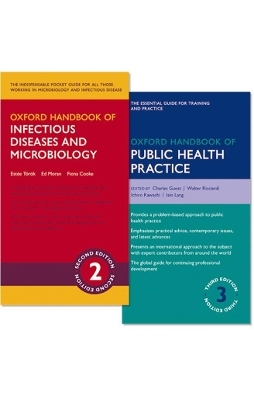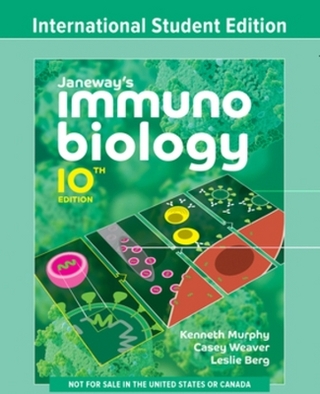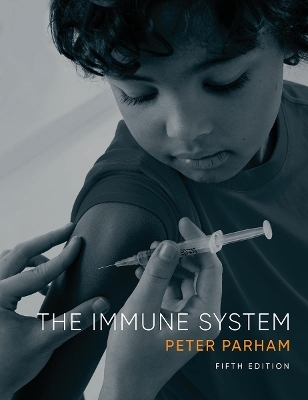
Oxford Handbook of Public Health Practice and Oxford Handbook of Infectious Diseases
Oxford University Press
978-0-19-875803-7 (ISBN)
- Titel ist leider vergriffen;
keine Neuauflage - Artikel merken
The third edition of the Oxford Handbook of Public Health Practice is available to purchase in a pack with the second edition of the Oxford Handbook of Infectious Diseases and Microbiology, offering complementary content from both handbooks at a discounted price.
Fully revised and updated for the third edition, the Oxford Handbook of Public Health Practice remains the first resort for all those working in this broad field. Structured to assist with practical tasks, translating evidence into policy, and providing concise summaries and real-world issues from across the globe, this literally provides a world of experience at your fingertips.
Easy-to-use, concise and practical, it is structured into seven parts that focus on the vital areas of assessment, data and information, direct action, policy, health-care systems, personal effectiveness and organisational development. Reflecting recent advances, the most promising developments in practical public health are presented, as well as maintaining essential summaries of core disciplines. This handbook is designed to assist students and practitioners around the world, for improved
management of disasters, epidemics, health behaviour, acute and chronic disease prevention, community and government action, environmental health, vulnerable populations, and more.
Fully reviewed and revised for its second edition, the Oxford Handbook of Infectious Diseases and Microbiology maintains its position as the must-have guide to all aspects of infectious diseases and microbiology. Reflecting the current approach to joint postgraduate training programmes, the handbook takes an integrated approach to both subjects. It covers the basic principles of bacteriology and virology, along with specific guidance on individual diseases and conditions, all in the
accessible Oxford Handbook style.
Now including new topics on important subjects such as microbiology specimen collection, commonly used media, molecular diagnostics, and antimicrobials in pregnancy, as well as incorporating new guidelines from WHO, NICE, and BASHH among others, this handbook ensures that the informaiton you need is accessible, clear, and easy-to-understand.
Practical and comprehensive, this handbook includes coverage of National Frameworks and current legislation, together with information on topical issues such as bioterrorism and preventative medicine. Fully reviewed by specialist senior readers, and with useful links to up-to-date clinical information and online resources, this is an important addition to the Oxford Handbook Series.
Oxford Handbook of Public Health Practice Dr Charles Guest has worked in government and academic public health in Australia and elsewhere, following graduation from Melbourne, Deakin and Harvard Universities. After medical registration in 1980 and clinical practice in Melbourne, he joined the Epidemic Intelligence Service, Centers for Disease Control and Prevention, posted to the New York City Department of Health in 1984. Subsequently, he undertook research on chronic disease in Australian Aborigines, communicable disease and environmental health. He is currently a Senior Specialist in Population Health, Australian Capital Territory Government, and Adjunct Professor in the College of Medicine, Biology and Environment, Australian National University. Professor Walter Ricciardi is the Director of the Institute of Hygiene, Università Cattolica del Sacro Cuore, Rome. He graduated from the University of Naples (Medicine and Surgery) in 1984, specialised in Hygiene and Preventive Medicine in 1988 and obtained his MSc (Community Medicine) at the London School of Hygiene and Tropical Medicine in 1989. Since 1993 he has held a number of key positions including President of the European Public Health Association, and has undertaken work with the World Health Organisation and the European Union. He is a Fellow of the Faculty of Public Health Medicine, Royal Colleges of Physicians of the United Kingdom and is a Member of the National Board of Medical Examiners, USA. Dr Ichiro Kawachi is Professor of Social Epidemiology, and Chairman of the Department of Society, Human Development and Health, at the Harvard School of Public Health. Kawachi received his medical degree and Ph.D. (epidemiology) from the University of Otago, New Zealand. He is the author of over 400 articles on the social and economic determinants of population health. He was the co-editor (with Lisa Berkman) of the first textbook on Social Epidemiology, published by Oxford University Press in 2000. He is also Senior Editor of the Social Epidemiology section of the international journal Social Science & Medicine. He has served as an advisor to the WHO, the World Bank, and the Pan American Health Organization. Dr Iain Lang is a Consultant in Public Health with NHS Devon Primary Care Trust and a Senior Lecturer in Public Health based at the National Institute for Health Research Peninsula Collaboration for Leadership in Applied Health Research and Care (PenCLAHRC), Peninsula College of Medicine and Dentistry, Exeter, UK. His practice and research interests are in the health of middle-aged and older people, quality of care, and health service improvement. Oxford Handbook of Infectious Diseases and Microbiology Estee Torok trained in Infectious Diseases and Medical Microbiology in Oxford. Prior to this she was a Clinical Research Fellow based at the Oxford University Clinical Research Unit in Vietnam. Her research interests are HIV, tuberculosis, central nervous system infections and the development of diagnostic tests for the developing world. Ed Moran is a registrar in Infectious Disease and General Medicine. He trained in Cambridge, studied for the Diploma in Tropical Medicine in Liverpool and undertook his PhD in Dengue Fever immunology in Oxford and Vietnam. He has worked as a physician in the UK and South Africa, and is currently based at the John Radcliffe Hospital in Oxford. Fiona Cooke trained in Medical Microbiology in London and Cambridge. She completed her PhD at the Wellcome Trust Sanger Institute. Her interests are gastro-intestinal infections, bacterial genomics and the development of molecular tests.
Oxford Handbook of Public Health Practice
Part 1: Assessment
1.1: Gabriele Bammer: Scoping public health problems
1.2: Sian Griffiths, Robyn Martin, and Don Sinclair: Priorities and ethics
1.3: John Wright and Ben Cave: Assessing health needs
1.4: Alex Scott-Samuel, Kate Ardern, and Martin Birley: Assessing health impacts
1.5: Peter Brambleby: Economic assessment
Part 2: Data and Information
2.1: Barry Tennison: Understanding data, information, and knowledge
2.2: Don Detmer: Information technology and informatics
2.3: Sara Mallinson, Jennie Popay, and Gareth Williams: Qualitative methods
2.4: Walter Ricciardi and Stefania Boccia: Epidemiological approach and design
2.5: Iain Lang: Inference, causality and interpretation
2.6: Anne Brice, Amanda Burls, and Alison Hill: Finding and appraising evidence
2.7: Julian Flowers: Health status
2.8: Daniel Sosin and Richard Hopkins: Surveillance
2.9: Patrick Saunders, Andrew Kibble, and Amanda Burls: Investigating clusters
2.10: Jem Rashbass and John Newton: Health trends: registers
Part 3: Direct Action
3.1: Sarah O'Brien: Communicable disease epidemics
3.2: Roscoe Taylor and Charles Guest: Environmental health risks
3.3: Tar-Ching Aw, Stuart Whitaker, and Malcolm Harrington: Protecting and promoting health in the workplace
3.4: Meredith Minkler and Charlotte Chang: Engaging communities in participatory research and action
3.5: Paul Bolton and Frederick Burkle: Emergency response
3.6: Angela Raffle, Alexandra Barratt, and Muir Gray: Screening
3.7: Hilary Burton, Alison Stewart: Genetics
3.8: Vish Viswanath: Health communication
3.9: Steve Gillam: Public health practice in primary care
Part 4: Policy Areas
4.1: Don Nutbeam: Developing healthy public policy
4.2: John Battersby: Translating policy into indicators and targets
4.3: Rebekah Jenkin, Christine Jorm, and Michael Frommer: Translating goals, indicators, and targets into public health action
4.4: Simon Chapman: Media advocacy for policy influence
4.5: Tim Lang and Martin Caraher: Influencing international policy
4.6: Nicholas Banatvala and Eric Heymann: Public health in poorer countries
4.7: Lawrence Gostin: Regulation
Part 5: Health-care Systems
5.1: David Lawrence: Planning health services
5.2: Anna Dixon: Funding and delivering health care
5.3: Richard Richards: Commissioning health care
5.4: Rubin Minhas, Gene Feder, and Chris Griffiths: Using guidance and frameworks
5.5: Martin McKee, Bernadette Khoshaba, and Marina Karanikolos: Evaluating health-care systems
5.6: Diana Delnoij: Health-care process and patient experience
5.7: Ruairidh Milne and Andrew Stevens: Evaluating health-care technologies
5.8: Sharon Friel: Improving equity
5.9: Nick Steel, David Melzer, Iain Lang: Improving quality
Part 6: Personal Effectiveness
6.1: Fiona Sim: Developing leadership skills
6.2: Edmund Jessop: Effective meetings
6.3: Edmund Jessop: Effective writing
6.4: Alan Maryon-Davis: Working with the media
6.5: Nick Steel and Charles Guest: Communicating risk
6.6: Charles Guest: Consultancy in a national strategy
6.7: Caron Grainger: Assessing and improving your own professional practice
6.8: Muir Gray: Activism
6.9: Muir Gray: Innovation
Part 7: Organizations
7.1: Virginia Pearson: Governance and accountability
7.2: Mike Gogarty: Business planning
7.3: Thomas Rice and Iain Laing: Controlling expenditures
7.4: Julian Elston: Partnerships
7.5: Jeanette Ward, Jeremy Grimshaw, and Martin Eccles: Knowledge transfer
7.6: David Pencheon, Sonia Roschnik, Paul Cosford: Health, sustainability, and climate change
7.7: Felix Greaves and Charles Guest: Workforce
7.8: Chris Spencer Jones: Effective public health action
Oxford Handbook of Infectious Diseases and Microbiology
1: Antimicrobials
1: Basic antimicrobials
2: Antibiotics
3: Antifungals
4: Antivirals
5: Antiparasitic therapy
6: Infection control
2: Systemic microbiology
7: Bacteria
8: Viruses
9: Fungi
10: Protozoa
11: Helminths
12: Ectoparasites
3: Clinical syndromes
13: Fever
14: Respiratory, head, and neck infections
15: Cardiovascular infections
16: Gastrointestinal infections
17: Urinary tract infections
18: Sexually transmitted infections
19: Neurological infections
20: Ophthalmological infections
21: Skin and soft tissue infections
22: Bone and joint infections
23: Pregnancy and childhood
24: Immunodeficiency and HIV
25: Health protection
| Erscheint lt. Verlag | 8.3.2018 |
|---|---|
| Reihe/Serie | Oxford Medical Handbooks |
| Verlagsort | Oxford |
| Sprache | englisch |
| Maße | 108 x 184 mm |
| Gewicht | 795 g |
| Themenwelt | Medizin / Pharmazie ► Gesundheitswesen |
| Studium ► Querschnittsbereiche ► Infektiologie / Immunologie | |
| Studium ► Querschnittsbereiche ► Prävention / Gesundheitsförderung | |
| ISBN-10 | 0-19-875803-0 / 0198758030 |
| ISBN-13 | 978-0-19-875803-7 / 9780198758037 |
| Zustand | Neuware |
| Haben Sie eine Frage zum Produkt? |
aus dem Bereich


